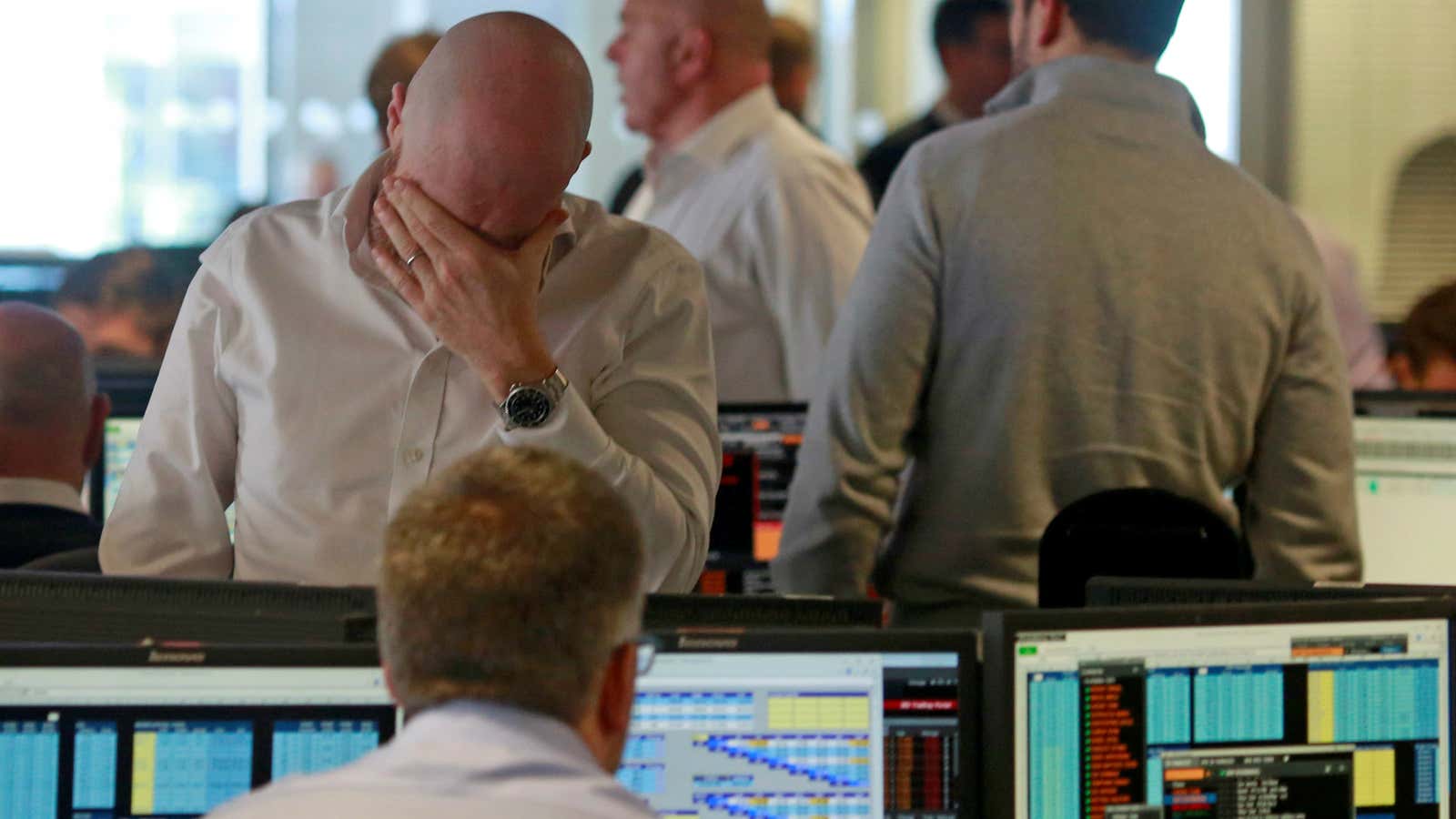British markets tanked on Friday morning following the country’s historic vote to the leave the European Union and the prime minister’s announcement that he would resign within months.
The amount of money that was wiped out on Britain’s FTSE 100 alone hit £125 billion ($171 billion) at its lowest ebb soon after trading started, Quartz calculated. That figure is equivalent to more than 15 years of the UK’s EU contributions, judging from what the UK paid into the EU budget in 2015.
The FTSE 100, which contains many big multinational companies, fell 8% at the open, but recovered somewhat to 4.5% by midday local time.
The FTSE 250, which features companies with predominantly sterling-denominated revenues, fell nearly 12% at the open, the most dramatic drop in its history.
The biggest losers are banks and homebuilders, some of which fell by more than 40% in early trading. Barclays, one of Britain’s largest banks, dropped 35% at the start of the day, later recovering to a 19% loss by noon.
The pound has been pummeled, losing around 10% of its value against the dollar in the morning, before recovering slightly at settling down 6% by noon. It was the worst one-day fall in the British currency on record, twice as bad as the fall on “Black Wednesday” in 1992.
Mark Carney, governor of the Bank of England, jumped in early to reassure the markets. He said the central bank will “not hesitate to take additional measures as required as those markets adjust and the UK economy moves forward,” including £250 billion of additional liquidity it can provide to the markets.
The comment was reminiscent of Mario Draghi’s 2012 statement that the European Central Bank would do “whatever it takes” to support the euro.
Carney tried to assure the markets that Britain’s banks were sound. He said they have 10 times as much capital as they did before financial crisis, and have raised £130 billion more. They currently have more than £600 billion of high-quality liquid assets which they can lend to UK businesses and households.
He said it was inevitable that markets would be affected: “It will take some time for the United Kingdom to establish new relationships with Europe and the rest of the world,” he said. “Some market and economic volatility can be expected as this process unfolds.” The comments calmed the markets a bit.
JPMorgan, in a letter to employees, said that some jobs might have to be moved from the UK, since the country could lose the free access it enjoys to the rest of the EU after it quits the club. “In the months ahead… we may need to make changes to our European legal entity structure and the location of some roles,” the memo said. Jamie Dimon, the bank’s CEO, said previously that 1,000 to 4,000 jobs could be moved if the vote went through.
The vote is being felt far beyond the UK’s shores. Ireland is a major trading partner, and the benchmark stock index in Dublin fell nearly 17% before recovering slightly by noon, to more than 9% lower.
European markets fell more than British ones, a nod to how Britain’s decision will be felt across the continent. Markets in Asia closed in the red, with Japan’s Topix 100 Index falling over 7.5% on the day.
